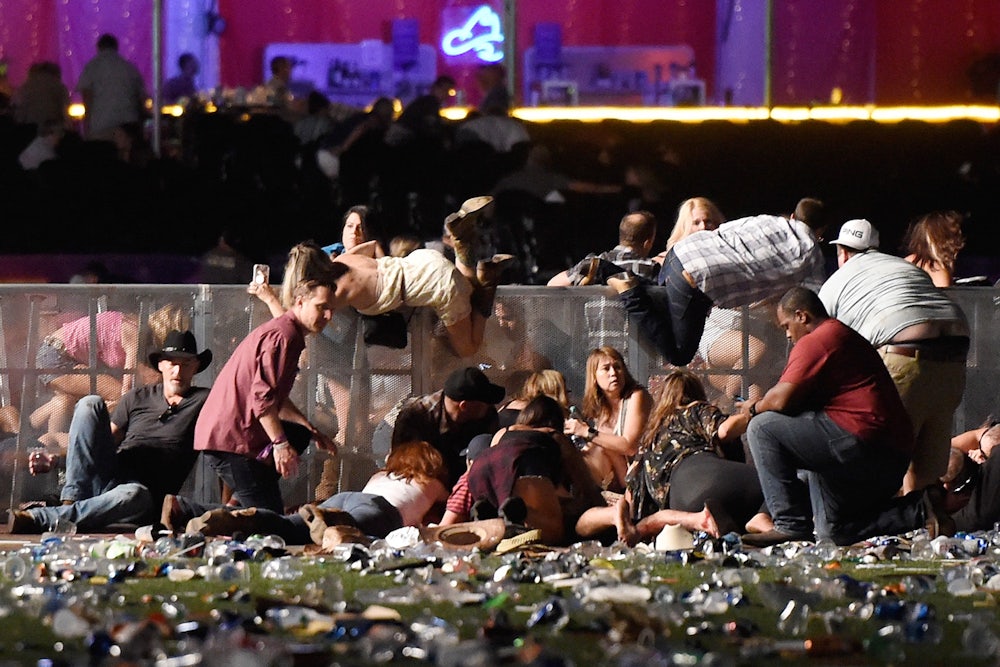Over 50 people are dead and 400 are injured because a man opened fire on a concert with an automatic rifle. It’s time, then, for Republicans to pray in public and demand that everyone stop politicizing an event with obvious political implications:
To all those political opportunists who are seizing on the tragedy in Las Vegas to call for more gun regs...You can't regulate evil...
— Governor Matt Bevin (@GovMattBevin) October 2, 2017
This is not the time for disingenuous claims of gun control. Can we get through this tragedy before insertion of politics?
— Gianno Caldwell (@GiannoCaldwell) October 2, 2017
The irony of the guy with the "Country over Party" avatar playing politics with this tragedy. https://t.co/YwvOTFQLqP
— Chris Barron (@ChrisRBarron) October 2, 2017
Senator Chris Murphy, who represents the families of Sandy Hook in Congress and has, since Newtown, emerged as one of gun control’s loudest advocates, rejected those calls in a strong statement:
“My heart goes out to the victims, their families, the first responders, and the entire Las Vegas community. Nowhere but America do horrific large-scale mass shootings happen with this degree of regularity. Last night’s massacre may go down as the deadliest in our nation’s history, but already this year there have been more mass shootings than days in the year.
“This must stop. It is positively infuriating that my colleagues in Congress are so afraid of the gun industry that they pretend there aren’t public policy responses to this epidemic. There are, and the thoughts and prayers of politicians are cruelly hollow if they are paired with continued legislative indifference. It’s time for Congress to get off its ass and do something.”
The real strength of Murphy’s statement isn’t its use of light profanity but rather its implied acknowledgement of the twin challenges facing the gun control movement. Nothing will change without policy, and policy is near-impossible to pass due to politics.
And politics is itself a multifaceted problem. There are the pragmatic implications of taking on the NRA, which is a behemoth that has bought off Congress. But we must also think about other reasons why the NRA is so mighty. The NRA sealed a sickness into the American mythos. The American as individualist frontiersman, the cowboy forever riding the range—that’s the NRA’s take on American exceptionalism. The government that is coming to take not only your guns, but your way of life—that’s the NRA’s contribution to the paranoid style in American politics.
These two fictions are so powerfully popular that they absorb reality, Blob-like. The danger that guns pose, the laws in other countries, the dead kindergarteners: None of it matters to the average gun-owning conservative, or at least not as much as their fanatical commitment to the America the NRA says it protects. Gun control advocates have to present a competing definition of what it means to be American.
